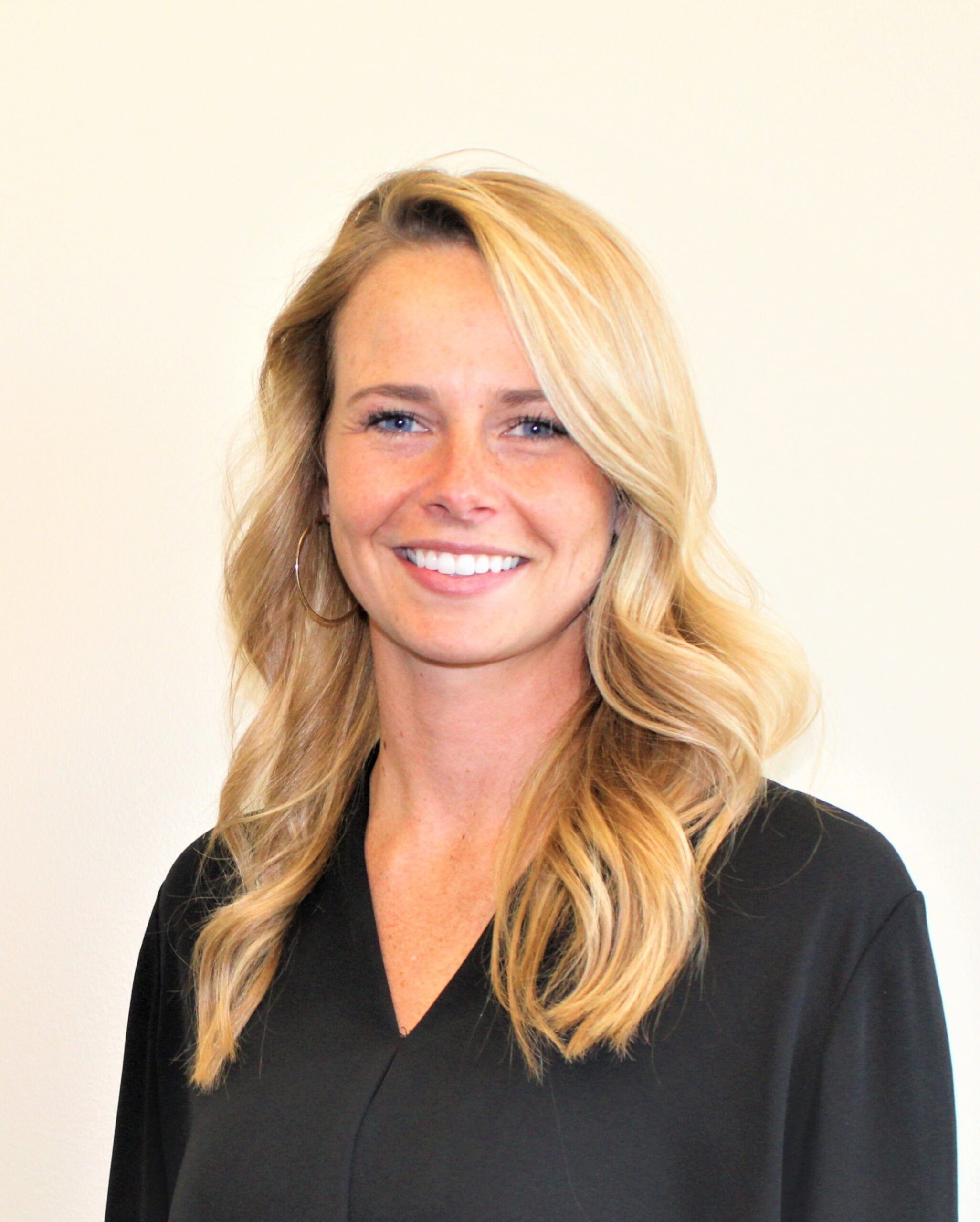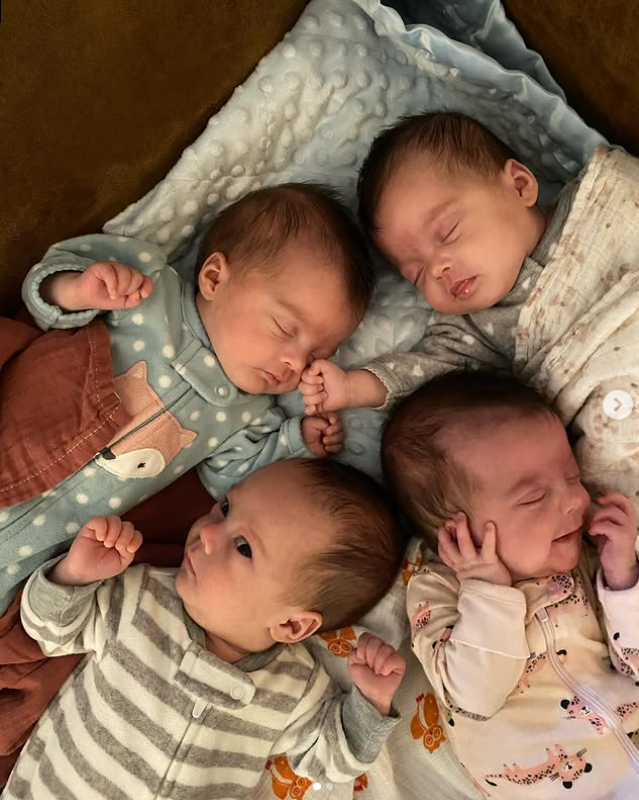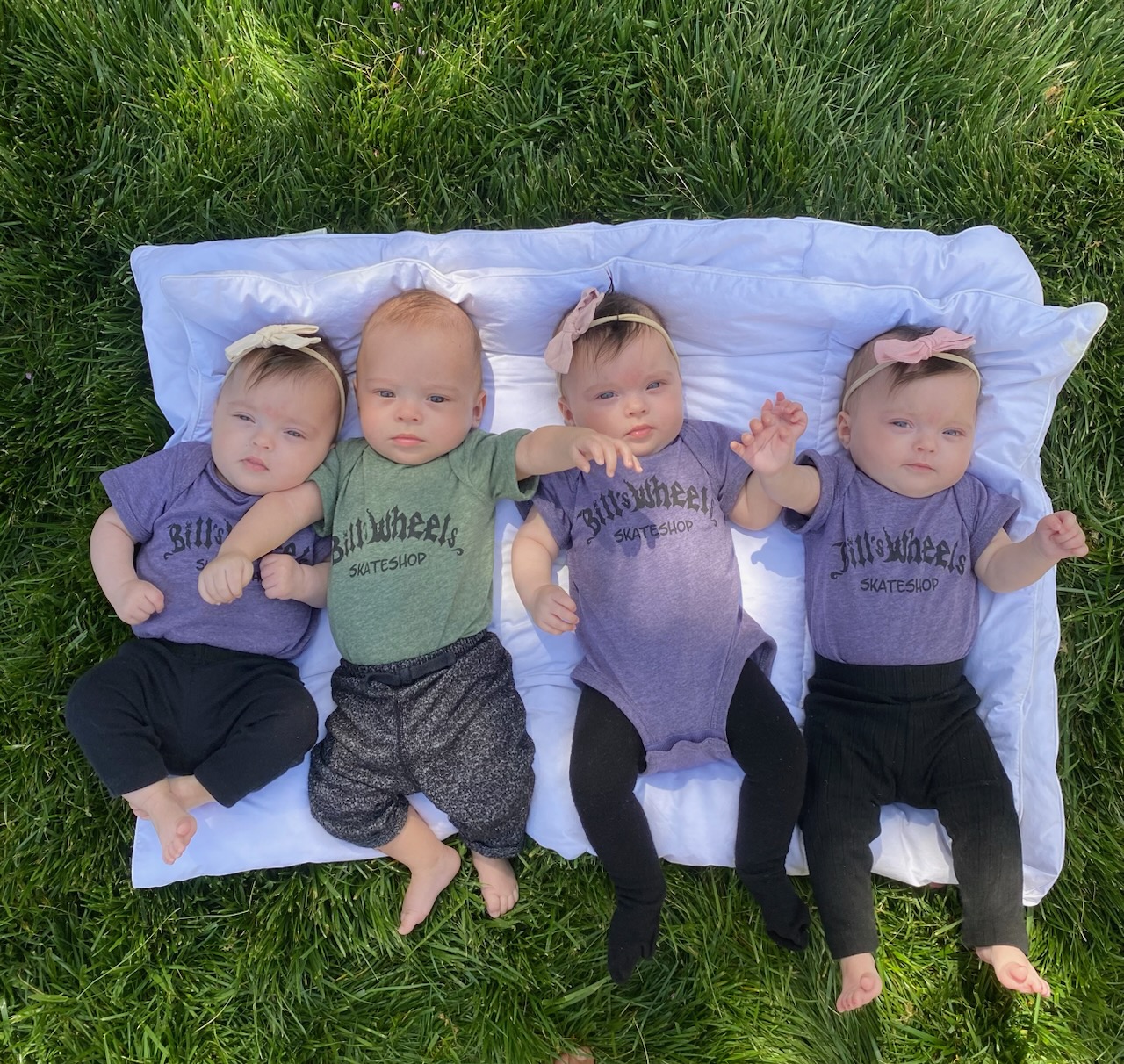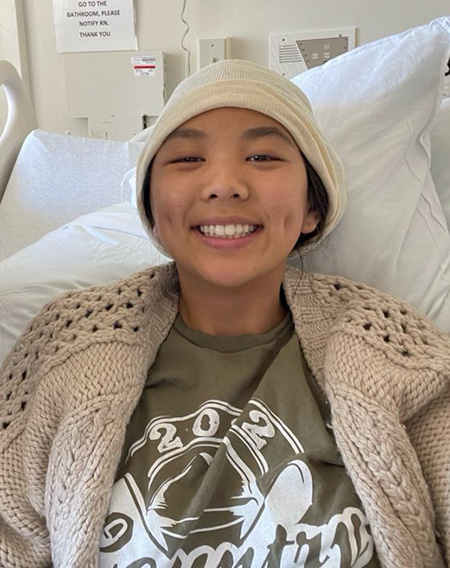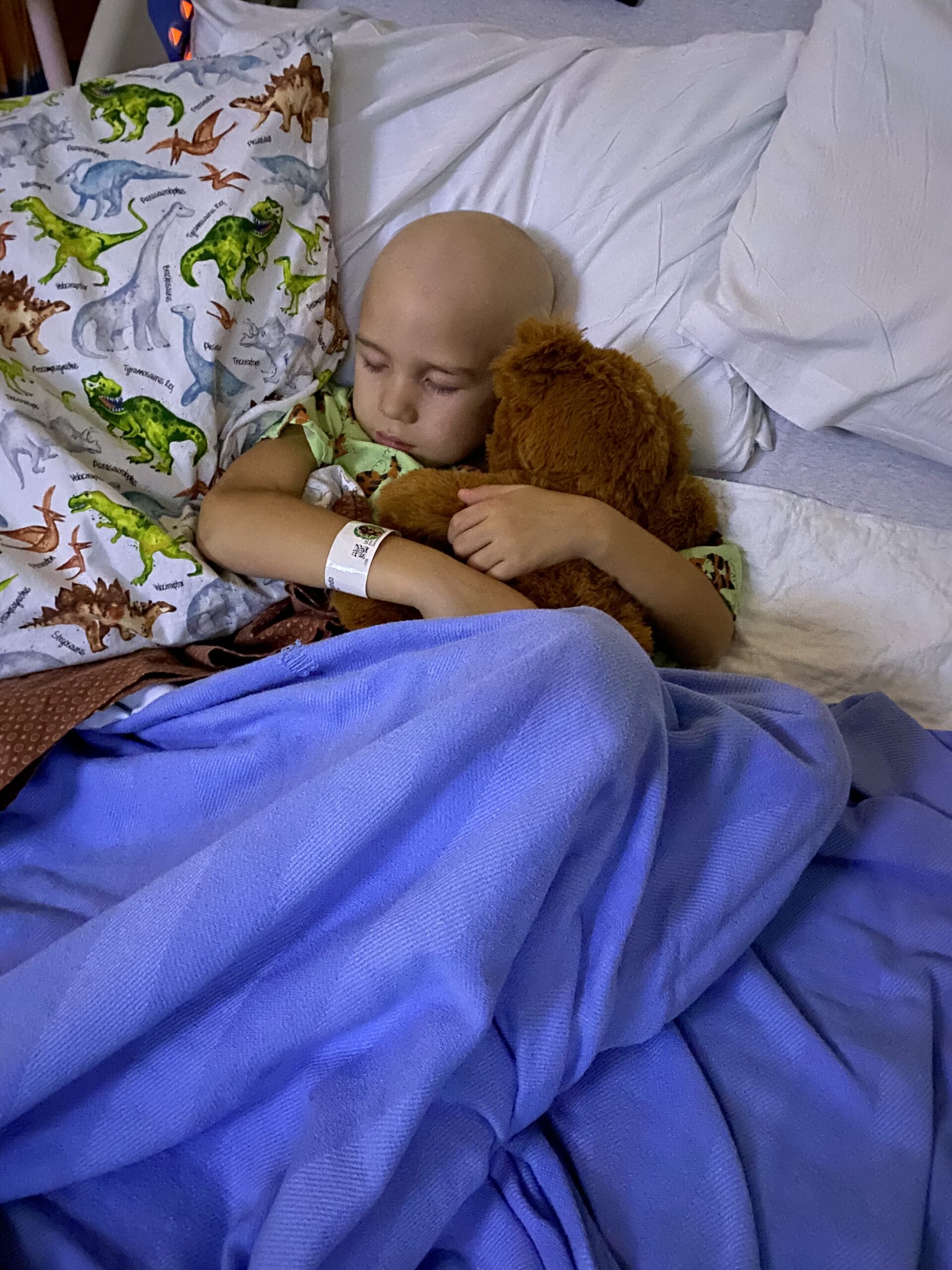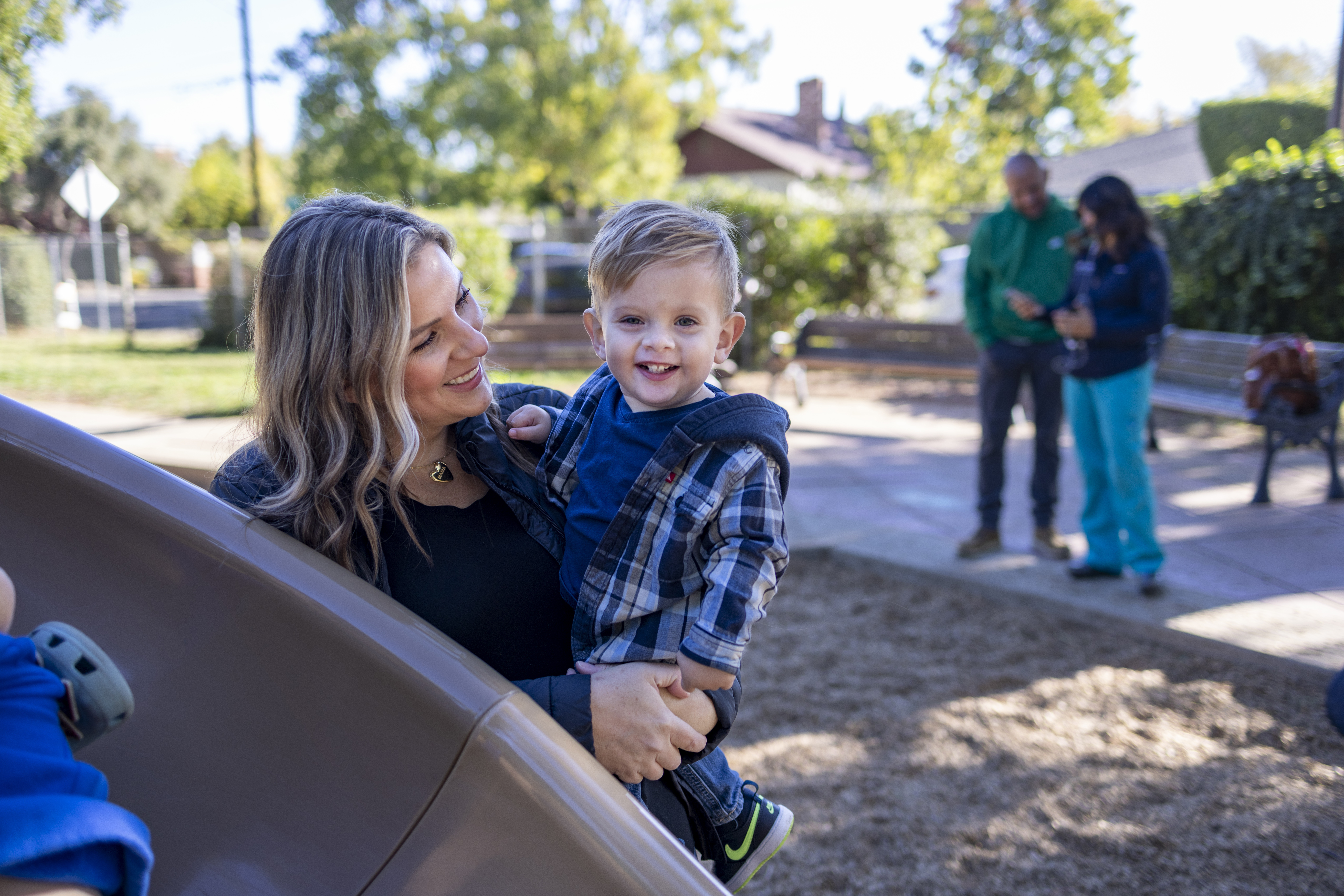UC Davis Children’s Hospital provides life-saving care to Lodi baby
It was July of 2020. Lodi residents Katy Eyer and her husband, Paul, were awaiting the arrival of their first baby. A girl.
“The pandemic had just started,” recalled Eyer. “It was a strange time to have a baby.”
Genetic testing did not reveal any concerns with the developing baby. But Eyer had been diagnosed with placenta previa — a condition where the placenta attaches low in the uterus. This can cause severe bleeding in the mother before, during or after delivery, so a C-section was scheduled at their local hospital in Lodi.
“We went in on a Monday morning for the C-section, and everything went well, but the baby was having a hard time breathing,” Eyer said. “They whisked her away to the NICU (neonatal intensive care unit) to figure out what was going on while they fixed me up. Paul went with them.”
An unexpected diagnosis
Not only was the baby, whom the Eyers named Ruthie, having difficulty breathing, but the care team advised her parents that she had some markers for Down syndrome or Turner syndrome.
“It was so strange since everything was normal on her prenatal testing,” Eyer said.
Ruthie’s care team put her on a CPAP, a machine that uses mild air pressure to keep the windpipe open. But she still wasn’t breathing well.
“The next day, Ruthie was on her way to UC Davis Children’s Hospital. It was all pretty unexpected,” Eyer added.
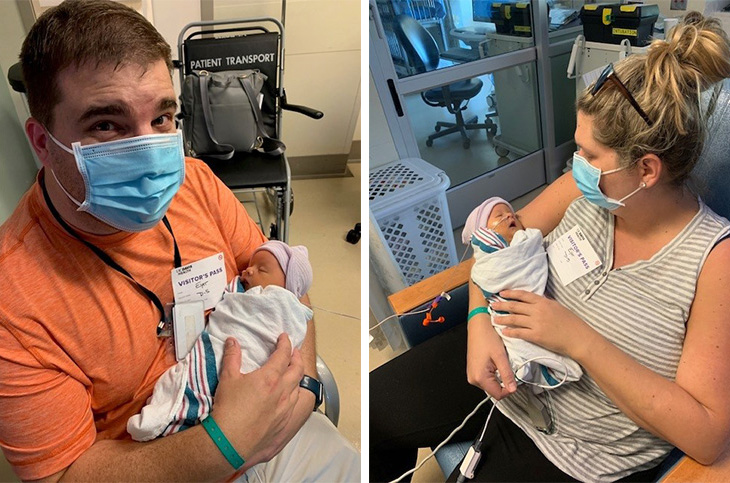
It was a frightening turn of events, but Eyer was comforted by the transport team who came to Lodi to pick Ruthie up.
“They were lovely. The got her all fixed up to transport and kept telling me how beautiful she was,” she recalled.
UC Davis Children’s Hospital bound
Eyer was discharged the same day but had not recovered from the C-section so she could not get to Sacramento right away. Luckily they were able to use the FamilyLink program available to parents with babies in the NICU.The webcam program allowed them to connect with Ruthie.
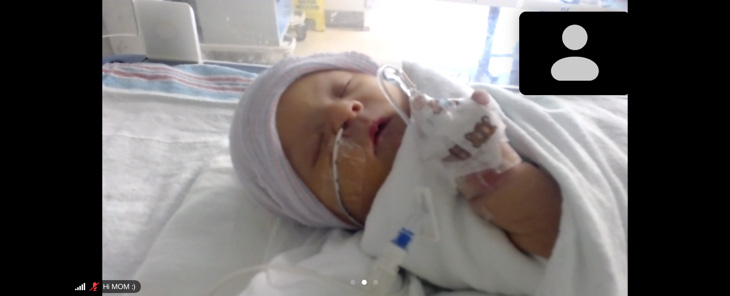
“We could see her, even though we could not be with her,” Eyer said. “That was really cool. We loved that.”
Although she was still in a lot of pain, Eyer and her husband headed to UC Davis Children’s Hospital to see Ruthie. The three of them got to be together in the same room for the first time.
The Eyers soon learned that Ruthie had Down syndrome and a heart defect, which is a fairly common combination.
“That’s when the next part of our journey began,” Eyer said. “Ruthie needed heart surgery, and we had a lot to learn about her Down syndrome diagnosis.”
First things first – Life-saving heart surgery
Atrioventricular canal defect (AVSD) repair surgery is a procedure to close holes in the heart wall and repair the valves in the heart. Down syndrome is a genetic condition in which a person has an extra copy of chromosome 21. When the fetus is developing, the extra chromosome changes how their body and brain develop.
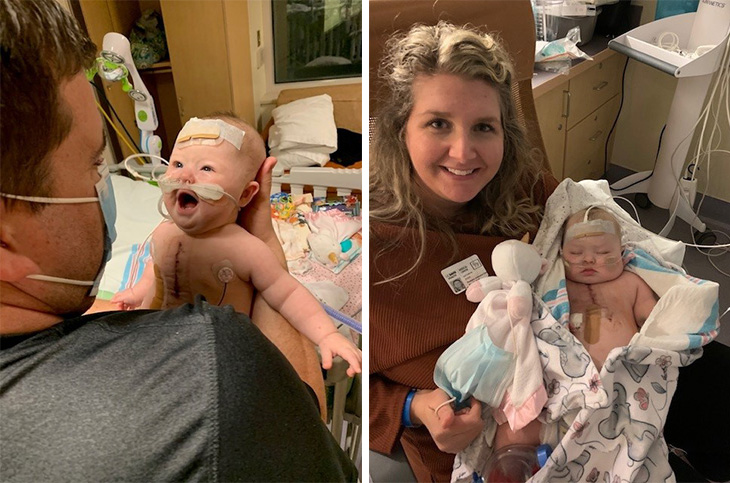
“Babies born with Down syndrome and AVSD require surgery before 6 months of age to prevent pulmonary vascular disease,” said Gary Raff, UC Davis pediatric cardiothoracic surgeon and co-director of the UC Davis Pediatric Heart Center. “Care for these patients can be challenging and requires a close knit team including cardiac surgeons, pediatric cardiologists, pediatric critical care and anesthesia specialists. In Ruthie’s case, pediatric pulmonary and endocrinology specialists were also part of her care team. This is why it is important for our community to have a hospital like UC Davis Children’s Hospital to care for patients like Ruthie.”
The Eyers settled in for what would be a month’s long stay in the hospital.
“We were there every day, beginning with morning rounds and staying until later in the afternoon,” Eyer said. “We got to know our nurses well and felt really confident in Ruthie’s care. I can’t say enough good things about the NICU and the cardiology team. We loved both our surgeon Gary Raff and cardiologist Yoni Dayan, too. They were so good to us.”
A multidisciplinary approach helps Ruthie soar
Eyer also recounted meeting with their genetic counselor from the UC Davis MIND Institute.
“It was important for us to learn about Down syndrome so we could ensure we did everything to keep Ruthie on track,” Eyer said.
And on track she is.
“Ruthie has some residual heart lesions that must be monitored, but she is doing very well clinically. In fact, she’s doing incredibly well,” said Dayan. “She is such a sweet and resilient girl.”
Ruthie is 4 years old now.
“She loves to swing, play with her little brother, blow bubbles and read books, which is Ruthie’s favorite thing. She will sit and read for an hour,” Eyer said.
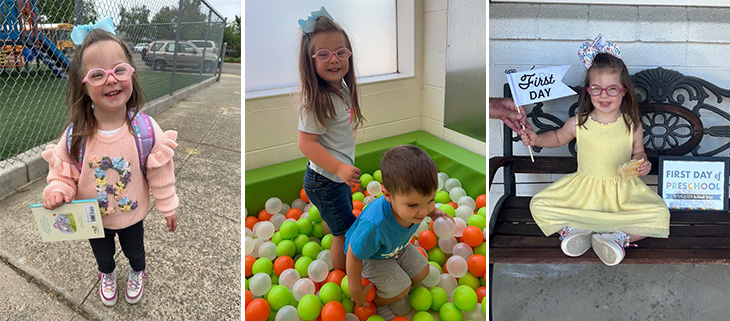
Eyer credits UC Davis Children’s Hospital and the MIND Institute for how far Ruthie has come.
“From where we started and all the worries we had to where we are now is like a dream,” Eyer said. “I would tell other parents to trust the experts. You are in good hands. We certainly were.”
